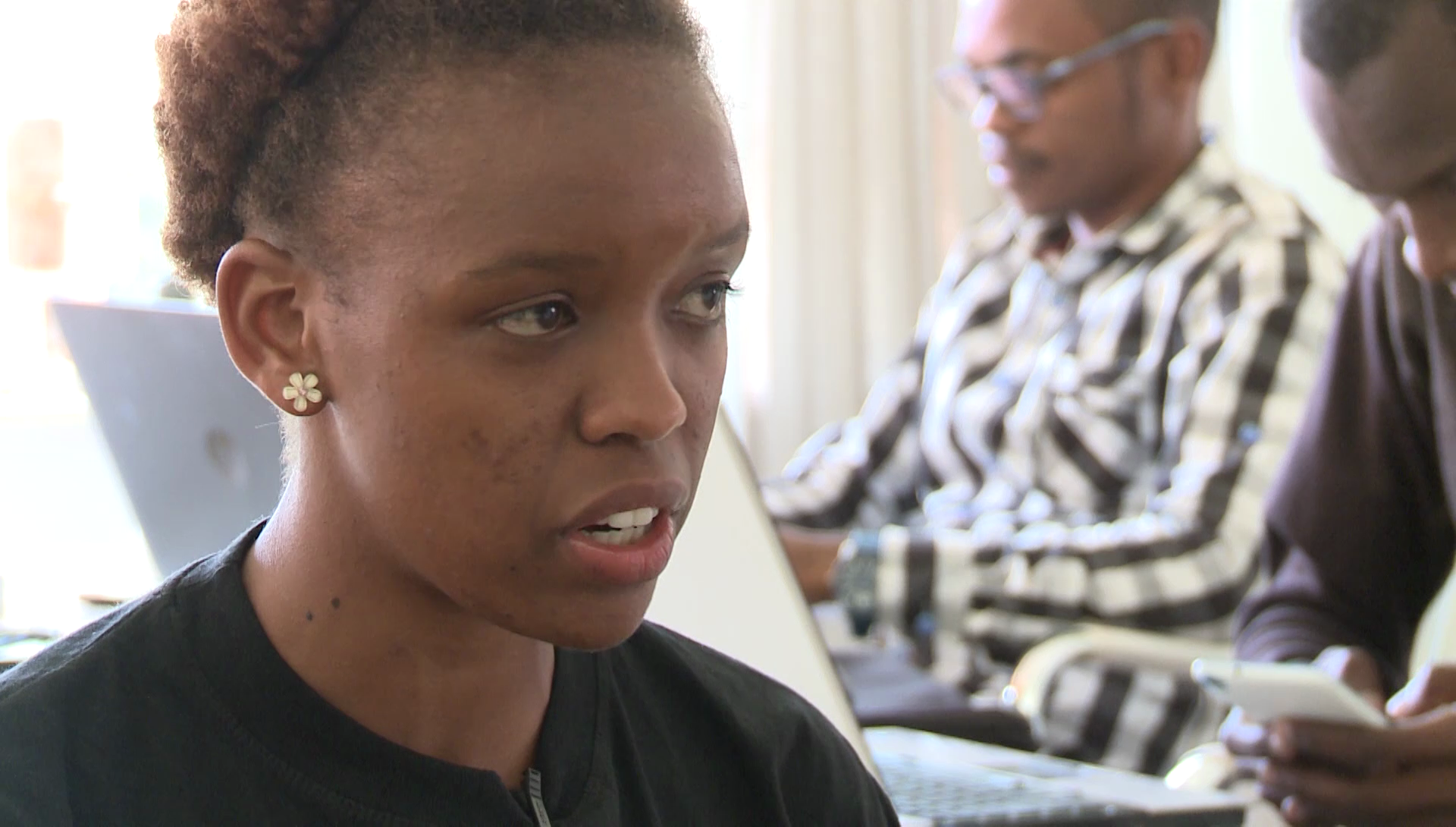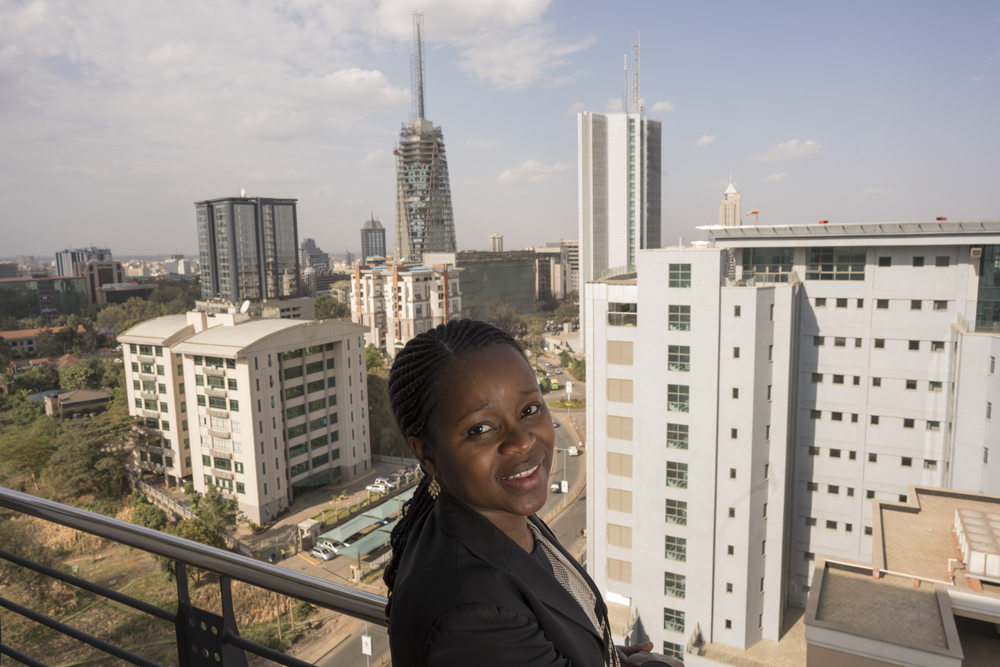Africa is set for a technology revolution over the coming years. Boost Africa will help enable this by stimulating venture capital support for early stage businesses in this high growth sector.
On the outskirts of Nakuru, Kenya, Isahia Alilubun checks his mobile phone. “We have received money through a simple text message,” he says. There was no need to go to the bank, something of a trek for him--and a trek not guaranteed to get him what he needs. On his farm, Alilubun is using the money to increase his harvest of hot peppers. This will improve his income. He had the financial support to do it thanks to FarmDrive, the brainchild of Rita Kimani and Peris Bosire.
Kimani and Bosire first met at University in Nairobi. As computer scientists, born into farming backgrounds, the pair pondered the issues facing their home communities. Thus FarmDrive was born.
FarmDrive is highly innovative, providing a platform for farmers in remote rural locations to access credit. “Smallholder farmers are hugely underbanked,” says Kimani. “They have no credit history, they don’t own land so that is not collateral for them. Yet this doesn’t mean they aren’t good borrowers. What we have done is build a solution that collects data from them via mobile. We crunch that and then financial institutions can use this to make lending decisions.”

“What we have done is built a solution that collects data from them via mobile. We crunch that and then financial institutions can use this to make lending decisions”, says Rita Kimani
While Alilubun is able to expand his crop harvest through finance obtained through technology, FarmDrive gets funding from Africa Technology Ventures, one of a handful of funds financing innovative start-ups in Africa. For the fund’s Managing Director Eline Blaauboer, FarmDrive “really stood out. Rita and Peris combine a farming background with computer skills which has enabled them to create superior technologies to other companies we have seen.”
Africa venture capital: Count the funds on both hands
Like Africa Technology Ventures, TLCom’s Tide Africa Fund is looking at technology start-ups in Africa, and getting in there early. The fund itself is the result of several years of research into what makes Africa tick when it comes to technology. “The opportunity rests in using existing technologies to provide a service,” says Andreata Muforo, TLCom’s investment director. “Africa’s internet and mobile penetration is high, and a large number of people have a small computer in their pocket. This is where technology companies are looking.”
Muforo is 35 years old and has a decade of experience working in the financial industry. She looks at venture capital in Africa and sees a space that is almost empty. This is something she aims to change. It is something for which she has huge ambitions.
“There’s a service gap,” Muforo says. “If you think about financial services for example, around 30% of the population has access to them. Compare this with around 65% to 70% who have access to mobile phones. What we need to do is use that platform to provide what people need, whether it’s health, education or banking services. We can support companies who, for example, make educational tools available over mobile. Kids will be able to use this to study and take exams.”
Tapping new sectors with Africa venture capital
The Tide Africa fund and Africa Technology Ventures, tech-focused, driven and ambitious, are the kinds of vehicles that the EIB and the African Development Bank are supporting through their new joint initiative, Boost Africa. The two institutions have a long-standing working partnership, and are each committing up to EUR 50m to Boost Africa.
Through Boost Africa, innovation and entrepreneurship are prioritised. Start-ups can use financing, advice and technical assistance to create the good jobs needed to entice young and tech-savvy Africans to work in a boom space. The overall project is expected to leverage EUR 1 billion in investment, and support 1,500 small businesses in the technology sector, creating 25,000 direct jobs.
Mariam Yeo Dembele, investment officer at the African Development Bank, recognises that Boost Africa is a departure from traditional financing. “It is only through this partnership with the EIB that we can reach these small companies, and those sectors which we couldn’t previously tap directly,” she says. “We want to actually boost Africa. We want to boost jobs for everybody, men, women and young people. We want to boost education, health, we want to boost e-health and e-farmers.”

"We'd like to create memorable African companies" Andreata Muforo, TLCom
Boost everything
Boost Africa is in its early stages. But the potential benefits are vast. It is part of a movement that could change the landscape for technology in Africa, and for the jobs market. “We have a passion as a team to build a tech Africa ecosystem,” says Andreata Muforo. “This is a space where there is real opportunity and real commercial return.”
That road can reach exciting new places. “I have dedicated over five years building a strategy for the Tide Africa Fund,” she says. “Over the coming five years I have very high hopes. I hope we get more investors to come to Africa, and invest in these great entrepreneurs. I hope we have a great impact on the local economies by creating jobs. We’d like to create a few memorable African companies that are visible globally and create value for Africans. What I want to see is our portfolio companies perform financially and go beyond. I want them to disrupt and completely revolutionise their industries by meeting the needs of people.”
Venture capital investment in start-ups has already changed things for Isahia Alilubun. Boost Africa, Africa Technology Ventures and the Tide Africa Fund are pioneering new ways to create jobs and growth on the continent. “Our key belief is that technology can really improve life for everyone,” says EIB investment officer Paola Ravacchioli. “That includes the poorest people on the continent.”
And that is the most significant impact of all.
